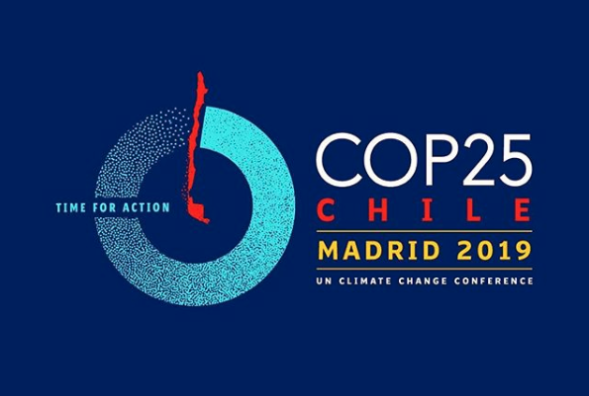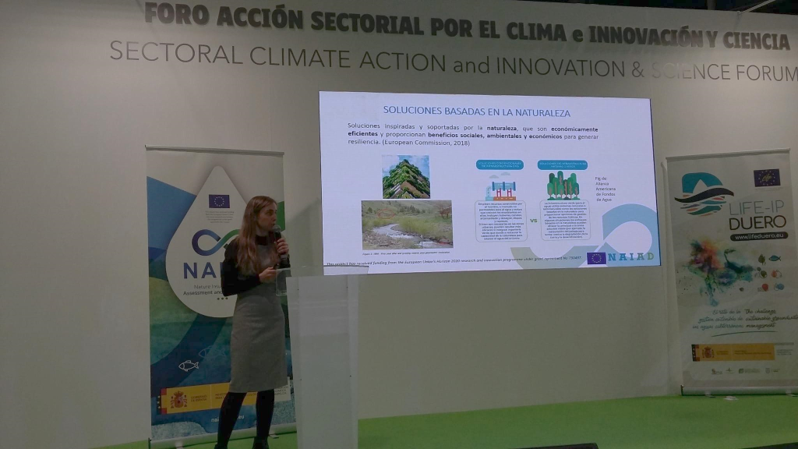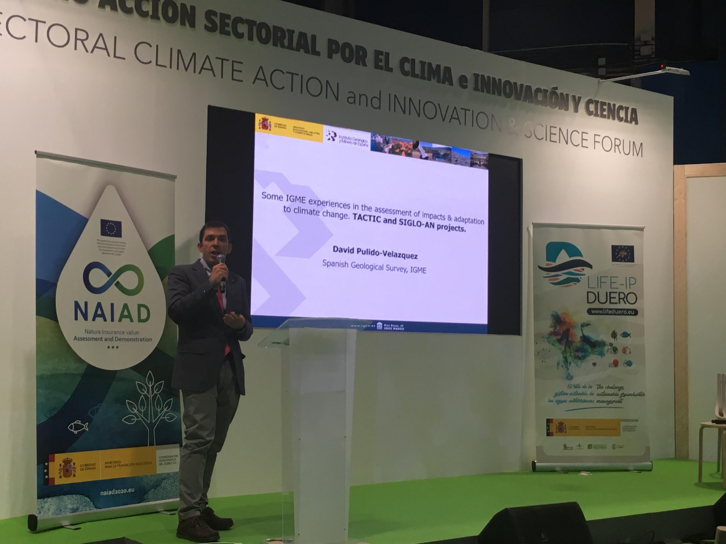Let’s recap the 25th Conference of the Parties on Climate Change celebrated in Madrid, gathering thousands of attendants from all over the world at the fastest prepared conference ever.

Icatalist grasped the chance to set up a session co-hosted by Confederación Hidrográfica del Duero (CHD) and Instituto Geológico y Minero Español (IGME) to present examples of Nature Based Solutions (NBS) and climate adaptation strategies implemented in Spain under the framework of NAIAD, TACTIC and GeoEra projects.
First, our colleague Beatriz Mayor Rodriguez presented NAIAD’s Spanish demo, lead by CHD and coordinate by Icatalist, where several NBS were assessed to reduce impacts from droughts and aquifer overexploitation in the Medina del Campo Aquifer.
Measures such as Managed Aquifer Recharge, crop changes towards more drought resilient species, groundwater abstractions control and creation of Water User Associations for better bottom-up groundwater management were assessed in terms of effectiveness and cost-benefits. Beatriz presented the NAS canvas tool, developed by Icatalist under the framework of NAIAD project, that allows the identification of viable business models that enable the funding and implementation of NBS at different environments, scales and scenarios.

Next, David Pulido presented IGME’s work within the frame of different European initiatives (TACTIC project, GeoEra projects) on modelling climate change impacts on groundwater in several sensitive sites in Spain. An array of climate change scenarios and projections that will help support decision making to build adaptation capacity in vulnerable areas.
Particularly, he highlighted the joint exercise by IGME and ICATALIST to build participatory climate adaptation strategies in the Mancha Oriental aquifer. This exercise was carried out last October with participation of different local stakeholders in the region, and resulted in the co-development of three sets of measures including NBS that were perceived to help improve the aquifer conditions while increasing climate resilience capacity and maintaining the socio-economic welfare in the region.

